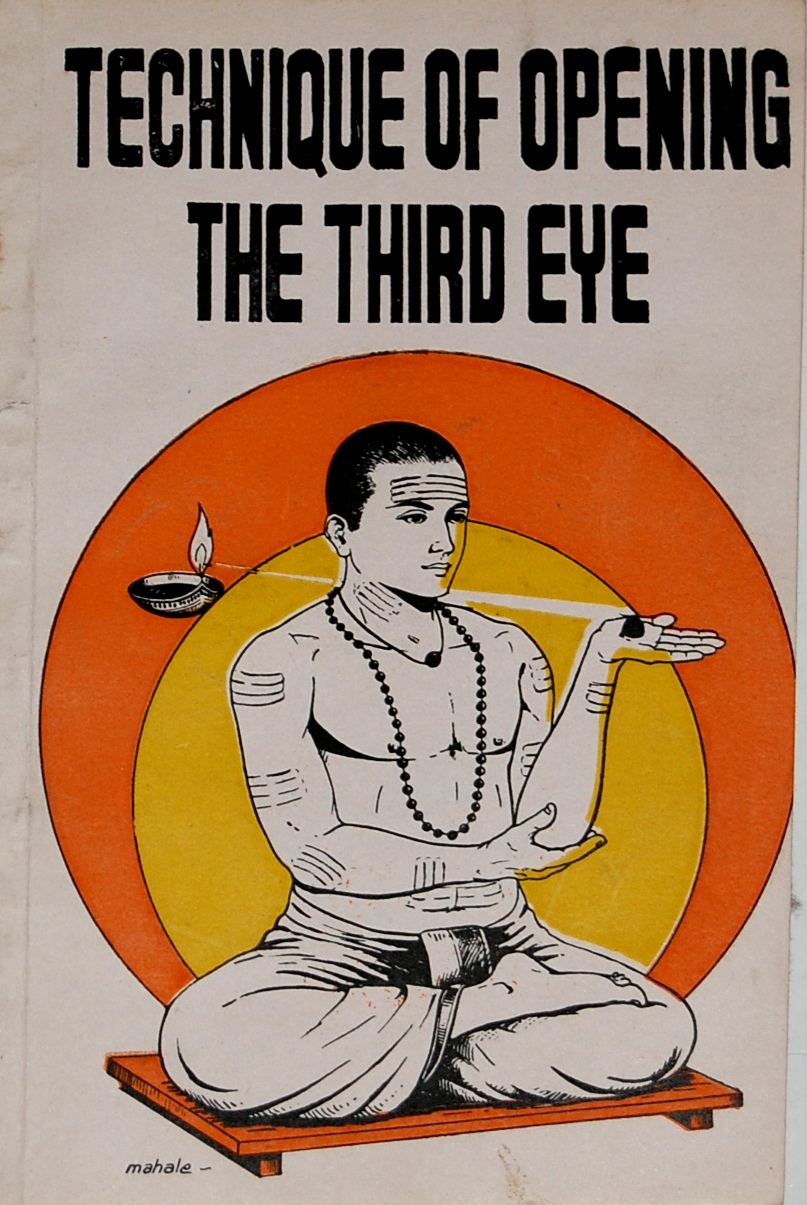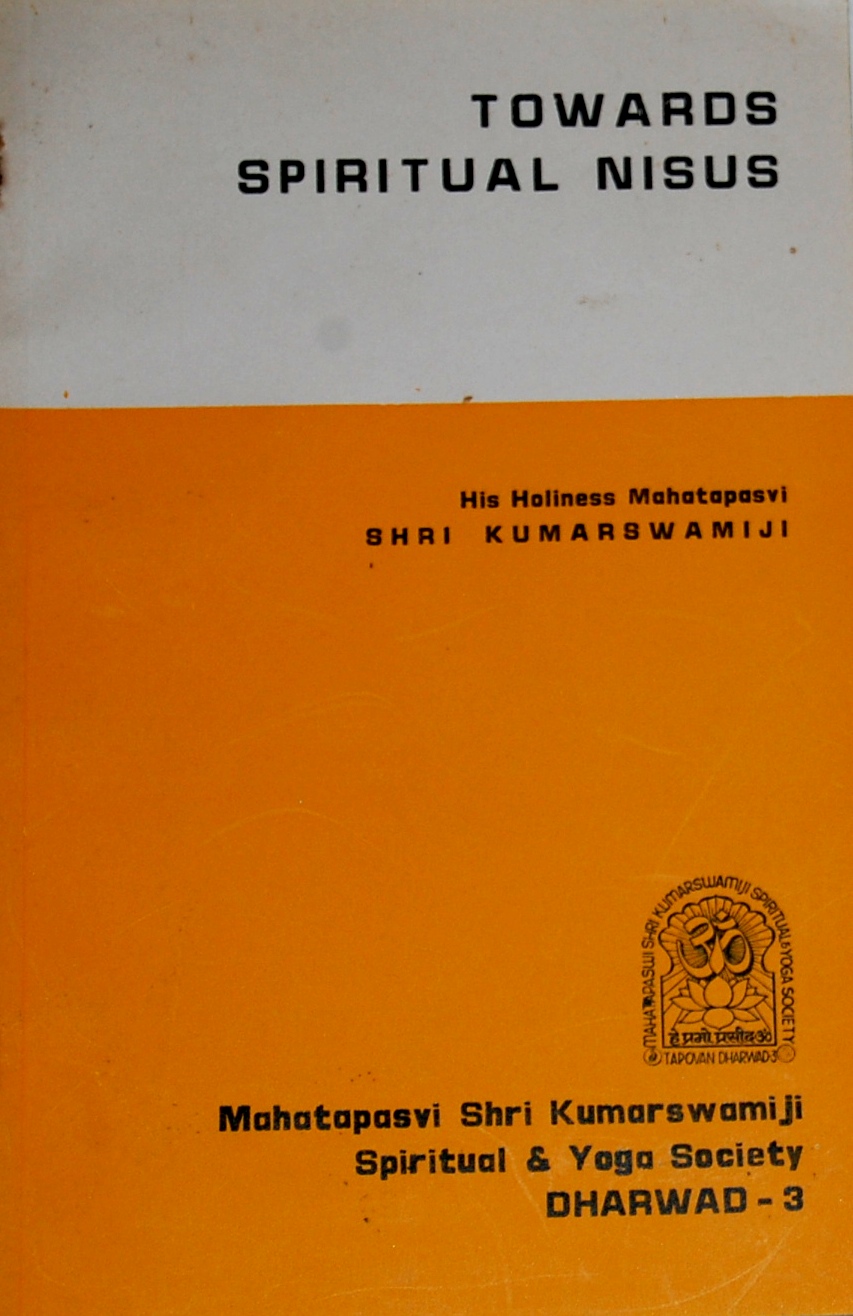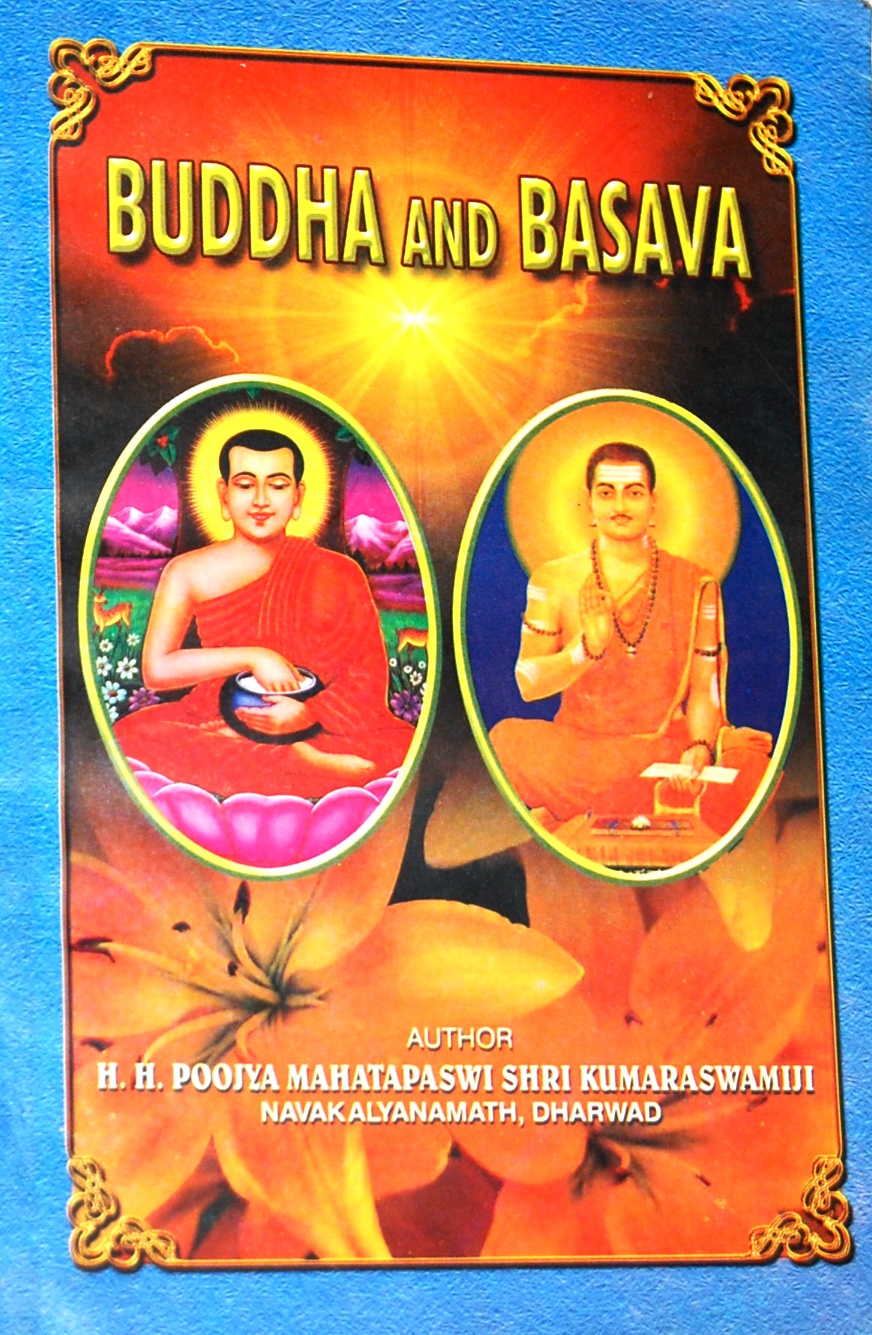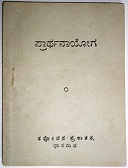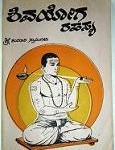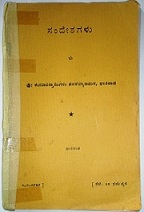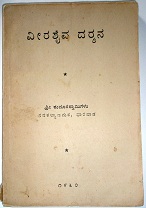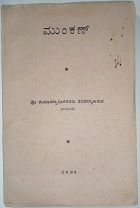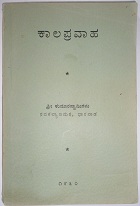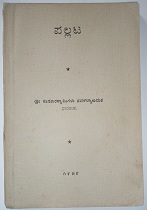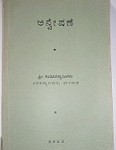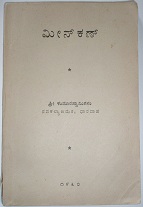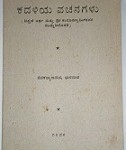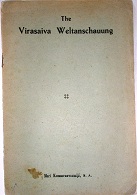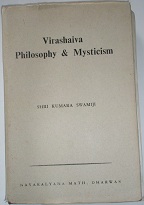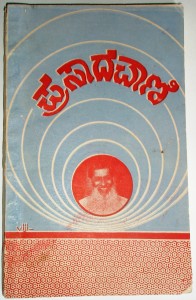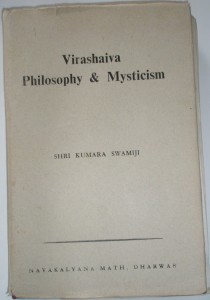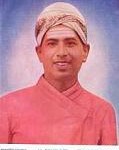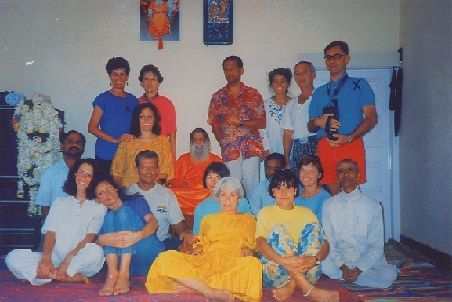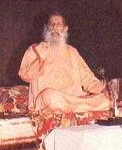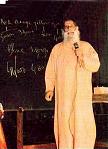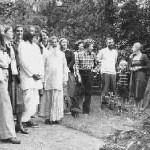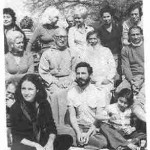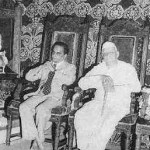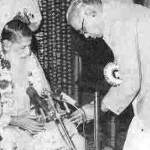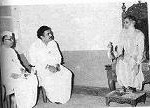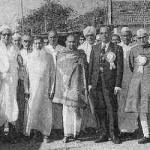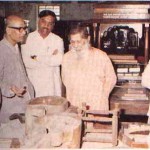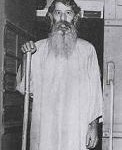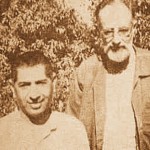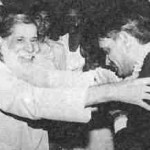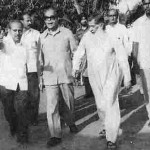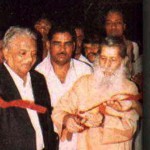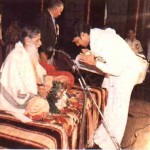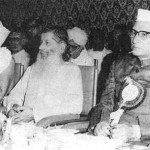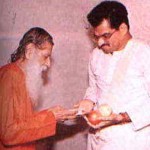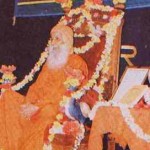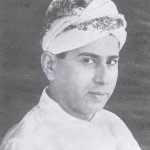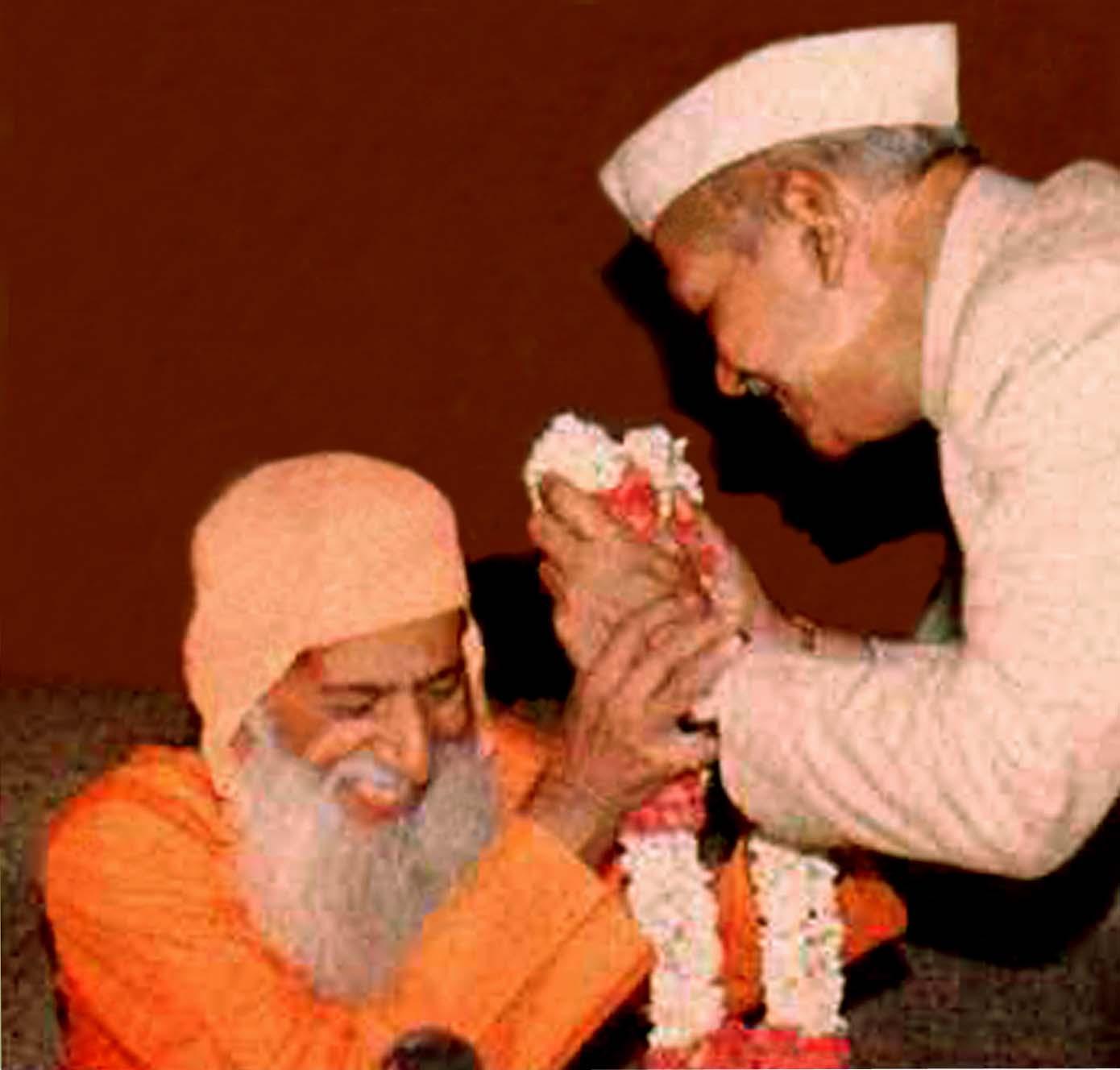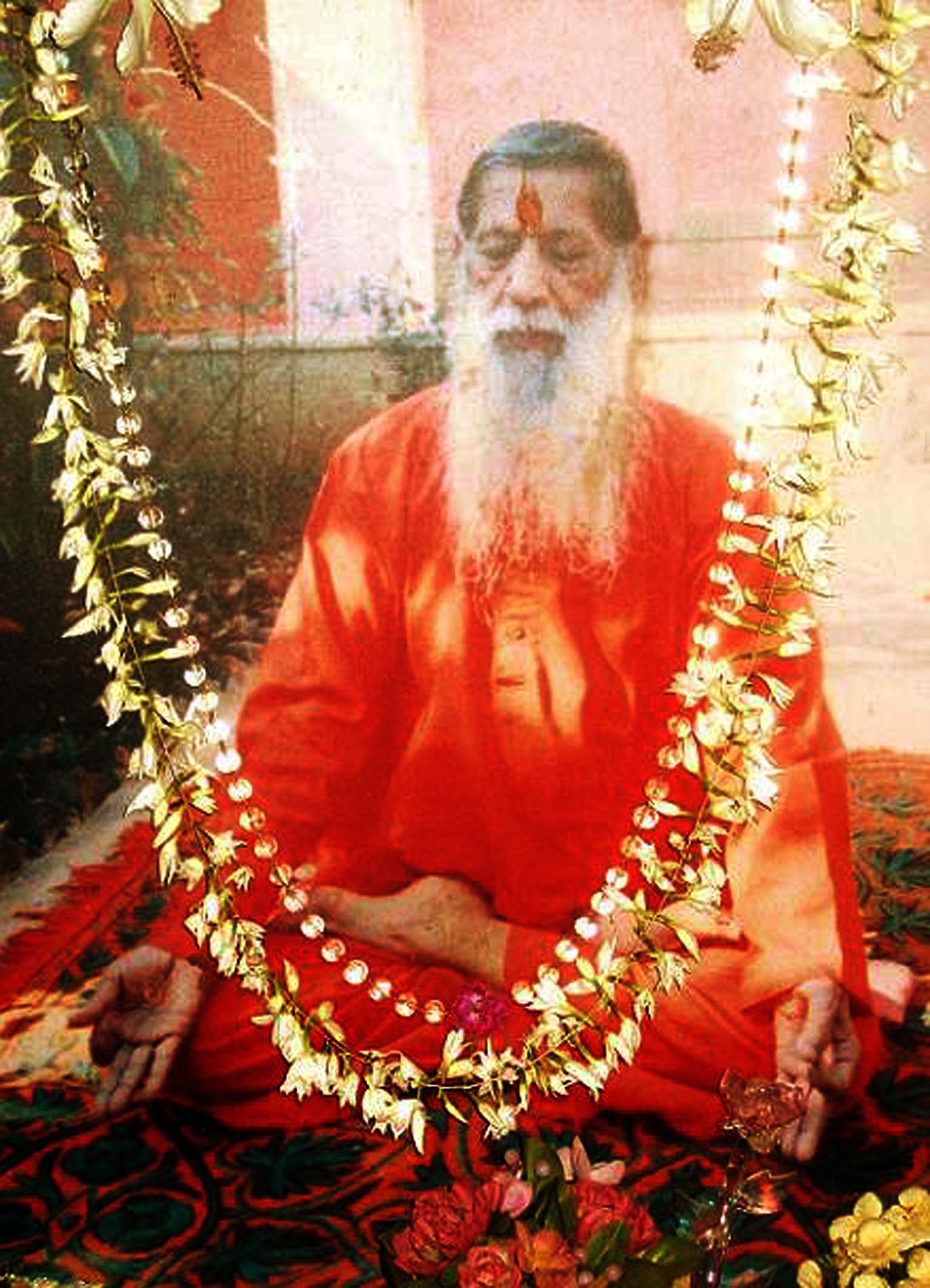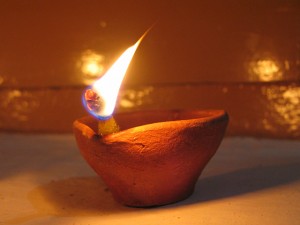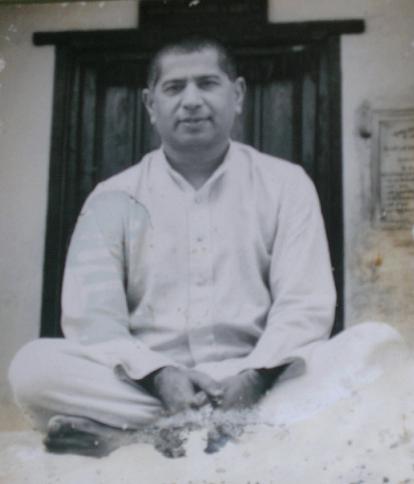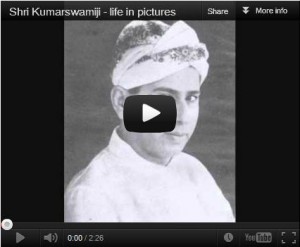Prabhu says that man is one by a unity of love with God. What sort of love is this that Prabhu speaks of? Is it physical, intellectual or moral? It is neither. It is spiritual. Prabhu is a stern ascetic and he countenances the spiritual aspect of love which is as intense and unremitting as the love which the non-discriminating have for the fleeting object of the senses. With him love is neither an illusion nor an impulse, neither disease nor weakness; it is a great mystery and a great necessity which lies at the base of human existence. Of course, love is as mysterious, universal and inevitable as death; yet it is the spiritual love that can conquer death. Spiritual death knows no reward, knows no fear, it is its own ideal.
Just as Socrates is the central figure of Plato’s dialogues, so Prabhu is a pivotal force, nay the Shining Sun of Righteousness, around who rotate the rest of the planets (Sharanas) of the Shunya-Sampadane. This is why it is, in fact, correct to say that the Shunya-Sampadane deserves to be called Prabhu’s Dialogues.
The Shunya Sampadane is a literary work which contains the dialogues of Allama Prabhu and other Veerashaiva saints, namely Basava, Channabasava, Marula Shankar, Madivalayya, Ayadaaki Marayya, Nuliya Chandrayya, Moligayya, Ghattivalayya, Goraksha, Akkamahadevi, Mauktayakka, Lakkamma etc. Of all the saints, Prabhudeva stands out as the outstanding mystic of that epoch. His contemporary saints looked up to him with respect and reverence for spiritual guidance, enlightenment, philosophical explanations and mystical matters. Just as Socrates is the central figure of Plato’s dialogues, so Prabhu is a pivotal force, nay the Shining Sun of Righteousness, around who rotate the rest of the planets (Sharanas) of the Shunya-Sampadane. This is why it is, in fact, correct to say that the Shunya-Sampadane deserves to be called Prabhu’s Dialogues.
The conversational zest of Socrates has made the Dialogues of Plato a masterpiece of philosophical literature. From the firs to the last in Plato’s dialogues, the hero is Socrates and all ideas seem to emerge from him. Plato like a dramatist is only in the background. Since the main source of knowledge of Plato is Socrates himself, it is no wonder that Plato is merely a mouth-piece of Socrates. Plato’s dialogue is essentially dramatic in character, interesting, suggestive and thought provoking, but in the end incomplete. The conclusions of the Dialogues are often incomplete, yet each one of them has a unity of its own. Scholars are content to conclude that Plato’s dialogues really represent the philosophy of Plato himself, though it may have found its inspiration in the personality and teachings of Socrates.
With Prabhu’s dialogues the case is altogether different. He shines as a beacon of light to illuminate the spiritual path of the seekers; he glitters as a guiding star to direct the movements of the aspirants. This does not mean that the domineering personality of Prabhu serves to dwindle into insignificance the individuality of the universality. The intellectual man is afraid to lose his personal life, abandon his personal objectives, annual his personal will and without these, life cannot be worth living. But the greatest skill of the Master is to have detected this chest of mind and its desires; and to have found the way to an abiding peace, universal delight and all-embracing satisfaction, which can not only be enjoyed oneself, but also can be communicated to others. Because of this inherent power on Prabhu, all Veerashaiva saints look upon him as their Seer-will, who lets the Divine Grace descend upon human consciousness, to reveal to it the divine meaning behind the pure blind action and blurred vision of man.
Prabhu’s Dialogues are dramatic in character; they are highly intellectual and studious, yet thought provoking and truthful. His style is versatile and not verbose. He carefully chooses and weights his words. He is clear, concise and correct to the point. But mind well, he does not mince his words. He calls a spade a spade. His words carry the courage of his conviction and experience. His style is not inquisitive but inquiring, not combative but persuasive, not sermonizing but matter of fact, not evading but reaffirming, not inconclusive but definitive. He compresses his wisdom into quintessential form of an epigram. His narration is so perfect and so concentrated as we pass from one vachana to another a simple vigorous, elegant rhythmic prose is seen. His sayings emanate from an enriched personal experience and there is nothing insincere or unreal about them. They come from the fertile mind endowed with selfless devotion and commitment to Shivayoga. They excel in artistic, poetic grandeur and excellence. With all his ascetism, Prabhu excels in human empathy and sympathy. They overflow with spontaneous knowledge, wit and wisdom. There is nothing unreal about them. They reflect his total personality. We are amazed at their profundity and charming fantasy. With an unrivalled command of cryptic style, with gifts of same humor and sound scholarship, he is one of the original thinkers and philosophers of the world.
Prabhu’s philosophy is contained in the Shunya Sampadane, which is composed of twenty dialogues. The dialogues are conversations between two or more Veerashaiva saints and usually center around a specific topic. Mutayakka’s dialogue, for example, relates to the discovery and value of knowledge of the eternal truth. Siddharama’s dialogue, on the other hand, is dialog centered on the character of knowledge and action. If in one dialog, the effect of transformation is brought into bold relief, in another the nature of humility in spiritual life is thrown into lurid light. Others are disquisitions upon metaphysics, mysticism and occultism, in which the atmosphere is surcharged with serenity and sublimity. The Dialogues thus vary from one end of the spectrum of worldly wisdom to philosophical profundity of incomparable depth.
Plato’s dialogues proceed somewhat as follows: Someone gives utterance to a platitudinous reflection about politics or religion in which some word like just, or true or beautiful appears. Socrates asks him what he means by the word, the initiator attempts to explain and gets himself involved in difficulties. Other speakers come to his rescue with different suggestions or interpretations so as to what the first speaker may have meant. Socrates disposes of them one by one and he in turn is challenged as to his own version of the meaning of the term. He undertakes this to do and the rest of the Dialogue is in effect a long disquisition by Socrates interspersed by objections or requests for restatement in the interest of clarity by the other speakers.
Plato’s idealism has its birth in the Socratic teaching of the concept. Concept is that which expresses the essence of a thing that which makes a thing what it is, and yet something that is free from all particular qualities. From this it follows that the concept or the Idea as Plato prefers to call it, is a sort of an ideal in a supersensible world. The doctrine of ideas in Plato as found in different dialogs is hardly a consistent homogenous doctrine, and there is an earlier version and then there is a latter version of the view. This has been developed by scholars like Windleband and Burnet. But Stewart is more definite in his Plato’s Doctrine of Ideas in asserting the fundamental consistency of Idea. He opines that “if there is a variation in language which gives an appearance of inconsistency, it is due to the fact that Plato is not only a philosopher but also a poet and a man of religion. To a poet personification occurs as a matter of course. If in the early dialogues there is a tendency towards the personification of Ideas s ideas, in the latter philosophical Dialogues there is little of rhetoric and a great deal of thinking which seeks to establish the unity of an Idea and its various manifestation in things. A bare multiplicity of things is unintelligible without the unifying force of idea; while an Idea by itself without its actual manifestation in things would be a mere abstraction. Thus does Plato uphold that every thing is rooted in Thought and that this is idealism.”
The existence of Ideas as embodied in things suggests plurality but the tendency of all idealism is towards unity and this is fully brought out by Plato. For the multiplicity of Ideas inevitably tends to be resolved in the ultimate Idea of the Good. This is the most vital part of Plato’s metaphysics as developed in the Republic. In the Republic it is said, “You have often been told that the idea of Good is the highest knowledge, and that all other things become useful and advantageous only by their use of this.” Plato compares the Good to the Sun – what the sun is in the visible world, the Good is in the world of Ideas. The sun makes things visible; the idea of the Good makes all things intelligible.
Prabhu’s idealism is clear, consistent and consummate. Throughout the Dialogues, he appears to be a champion of idealism, which is well-knit in the context of things, for an idealist outlook of an ultimate connection of value and reality is maintained in him. Indian philosophy calls in the aid of intuition, a higher value is given to it, as exhibiting a fact which is beyond the grasp of reason. This does not mean that reason is brushed aside as valueless, but emphasis has been laid on the necessary of reason to formulate its judgment according to finer intuitions. Reason can not deny intuition, for its existence is a fact of intuition. The first act of apprehension is really intuitive rather than rational. Kant and Groce are right when they accept intuition as the first stage of knowledge. But they have confined intuition to aesthetic sensibility and cannot discern the application of intuition to indicate the highest kind of knowledge, knowledge without distinction. This highest kind of knowledge is the summum bonum of life and it is knowledge as nihsreyas – the highest good.
Duty has this great value that it makes us feel the reality of the positive world, while it detaches us from it. What is duty? It is to obey one’s nature at its best or it is to vanquish one’s lower nature by living up to its dictates. Duty, however, is not a state of passive acquiescence; it calls for the active promotion of the welfare of society and for benevolent virtues. As springs of duty are to be found in the moral nature of man, some inquiry into the nature and foundation of moral philosophy is deemed necessary. On this, there are two philosophical schools of thought, whose opposition may be traced to the earliest days of ethical thought – the stoical or the intuitive view, and the Epicurean or the inductive view.
The modern utilitarians are the representatives of the inductive view. According to this view, virtuous action is the action which produces happiness, and the one and only one motive to action in the individual is the attainment of his own personal happiness as he conceives it. Virtue is no more than enlightened self-interest. The sole reason for forming a virtuous habit or performing a virtuous action is that we anticipate therefrom the greater sum of happiness for ourselves. To this source every moral principle of inductive view may be traced, whether by the method of Thomas Hobbes in the unqualified nakedness, or through Hartley’s doctrine of the association of ideas.
To this mystic demurs, he says that in the first place it deprive the un-virtuous man of any motive to act virtuously, in the second it deprives virtuous action of any merits and in the third it fails to account for the idea of obligation and duty. Hence, the necessity of intuitive view. Man has, as part of his endowment, an intuitive perception of fundamental moral principles as laying him under positive obligations quite irrespective of his own interests; however he may regard them as probably tending ultimately to his personal benefit. It is to the Stoics to whom we must turn as upholders of the lamp of moral ideals. Epicurean, recognizing self-interest as the sole motive to morality, can not excite moral enthusiasm. Stoicism assumes that virtue is itself the end for which man exists and not a means to some other end. Duty, as supreme self control, control over passions which lead us astray and perturb our vision, is essential. Prabhu was stoic in his temperament and held aloft the torch of moral ideals. In his Dialogues, Prabhu has reprimanded many a saint for his/her lapse in his/her spiritual duties, and restored him/her to his/her original sense of divinity. Basava, Nuliya Chandayya, Ayadakki Marayya, Goraksha, Muktayakka, Mahadevi, etc. came under his ‘whip’ and thereby became the recipients of his benevolent grace.
Eternal striving is the key-note of modern morality. This painful and restless becoming has taken place of harmony and joy. Evaluation believes in the straight-line progress and tells us that man is gradually progressing from the stage of faun and matter to the status of angel. Our ideal is no longer to have tranquil beauty of the soul, only it is the anguish of a titan fighting with the hydra of evil. No longer are there happy and accomplished men, only there are slaves on earth, appearing in the capacity of candidates for heaven, who row away their lives in the exploration of harbor. It sounds ridiculous that this perfection is nothing else but a pretentious imperfection. The becoming then seems rather negative than positive. It is the lessening of evil but is not itself the good. It is noble discontent but by no means felicity. This ceaseless pursuit of an endless aim is a generous madness but is not wisdom. Yet there is none who may not achieve harmony and harmony seeks nothing that is outside of itself. It is exactly what it should be, for it expresses goodness, truth, law and order.
There are two degrees of realization – one, wherein a man is self-complacent; the other, wherein he is self-accomplished. Of these two, the second is truer, more sublime and more subtle. Prabhu was a self-accomplished man, a Siddha Purusha; for he had accomplished harmony in himself – the harmony which transcends time and reveals the eternal. This harmony gave Prabhu the power of remaining spiritually young. The whole secret of retaining youth is to keep an enthusiasm burning within by maintaining harmony in the soul; when everything is in right order within, one may rest in equilibrium with the work of God. A buoyant enthusiasm for the eternal beauty and order, a glowing mind and a gracious will are perhaps the foundation of wisdom. As he himself says, Prabhu is decked with this wisdom, for a peaceful surreal surrounds his rich personality. Wisdom includes all treasures of moral experience, and the ripest fruit of a righteous life. Only the wise man tastes all the savour of life, only because he can recognize its beauty, dignity and worth. To be all things in God, to make one’s own life a voyage to the ideal, to live with gratitude and courage – this is the admirable spirit of Allama Prabhu. Add to this, a spirit of humility, mercy and geniality of Basava, you will have the wisdom of God’s children, the undying joy of mystics.
Karnataka witnessed a renaissance heralded by Prabhu and Basava in the middle of the twelfth century. Renaissance is known as the revolt of man and it was the revolt against mechanistic cosmology, the ecclesiastical authority and social injustice and tyranny. Positively, it created an intellectual atmosphere in which the germs of spiritual knowledge could fructify. It held that God had created man in his own image and consequently man was destined to be God-like, to hear the voice of God in his own conscience and realize the almightiness of God in his sovereignty, dignity and creativeness. Believing that conscience of man was the voice of God, it claimed freedom of action according to the conscience and as any action presupposed the will to act, it also proclaimed freedom of the will. It liberated reason from the yoke of scholasticism. It declared the spiritual liberation of man and ushered the freedom of speech and thought, which immensely expanded the scope of human activity. The significance of renaissance was undoubtedly revolutionary; it was a revolution in the realm of ideas and value which destroyed the moral sanction of the old order and consequently prepared the ground for the social and religious upheavals of the following century. Prabhu’s Dialogues contain an under current of the revolt of man which reminds us of a foreshadowing of the renaissance of the middle of the 14th century in Europe.
The approach of the Dialogues to the problem of life is not cosmological but ontological. The center of life, Prabhu maintains, is neither in sensation nor in thought; nor even in consciousness in so far as he thinks, feels or wills. The human conscious is the Being. Those truths alone which have entered this profound region and have become spontaneous only are our life and more than our external possessions. Now, it is certain that we can find our peace only in life, indeed only in eternal life and this eternal life is God. Only when man is one by a unity of love with God, then only he is what he is meant to be. There is but one life, a universal life, an eternal life in the world. It fills all forms, shapes and manifestations and is the real life that each imagines being his personal property. There is but One and we are centers of consciousness and expression of the One. There is unity and harmony which becomes apparent to those who enter into the consciousness of the One life. There is peace and serenity in the thought; there is strength and power in the knowledge. In the very center of our own being, there dwells a Holy of the holies. Prabhu admonishes us to enter into the silence of the shrines.
Prabhu says that man is one by a unity of love with God. What sort of love is this that Prabhu speaks of? Is it physical, intellectual or moral? It is neither. It is spiritual. Prabhu is a stern ascetic and he countenances the spiritual aspect of love which is as intense and unremitting as the love which the non-discriminating have for the fleeting object of the senses. With him love is neither an illusion nor an impulse, neither disease nor weakness; it is a great mystery and a great necessity which lies at the base of human existence. Of course, love is as mysterious, universal and inevitable as death; yet it is the spiritual love that can conquer death. Spiritual death knows no reward, knows no fear, it is its own ideal. Such spiritual love is immortal, says Narada, “obtaining which man becomes perfect, become satisfied; obtaining which he desires not, grieves not, hates not; knowing which he becomes intoxicated with joy and rejoices in the self, for its nature is renunciation.”
The spiritual love has keen insight to penetrate into the soul of nature and reproduce the finer ideas and harmonies sleeping in her bosom. There is melody and music in the inmost existence of our being and one who can catch inspiration can produce the finest creation. But this does not mean that reality always lies in the gentler movements of life, it also lies in the more strenuous movements. There is beauty in the fierce and terrible; there is beauty in the dance of death. If the human soul can forgo its usual weakness, timidity and inclination to the agreeable, it can see and feel the more majestic harmony of nature revealed in her ruggedness, fierceness and destruction. This harmony is supra-vital and upsets the vital expectations and hence it does not make the usual appeal to the mind. But the supra-mental and the supra-vital are expressed in such sublimities and the source of sublimity is Infinity. Prabhu is sublime in his art and his Dialogues reveal the sublime nature of the Infinite.
In Plato’s Dialogues love occupies a prominent place. In initial stages, he treats love as relation between persons of the same sex. Wives and mothers, and those men might wish make wives and mothers, were secluded in the home. Social life in Athens then was male life and spent to a large extent in the gymnasium. It was there that Socrates found his keen audience and pupils. Since Plato was reproducing the ideas of his master’s conversations, it is natural that there should be no women taking part in the Dialogues. But in Prabhu’s Dialogues not only women saints were participating but they were also blessed by Nirvikalpa Samadhi (indeterminate trance)
Plato is not blind to the force of the physical love. He recalls to our minds Hesoid and Parmenides held that Eros is the first principle from which all things proceed. Schopenhauer gives a graphic account of the physical love as follows: “The relationship of the sexes is really the individual central point of all actions and conduct, and peeps out every where in spite of all the veils thrown over it. It is the cause of war and the end of peace; the basis of what is serious and aims of the jest, the inexhaustible source of wit, the key of all illusions and the meaning of all mysterious hints.”
To Plato, though love is a thing of greatest importance, its end and purpose is not in itself. It is a first step of the ladder lending to the higher life. Sex ought not to be indulged in but sublimated – this seems to be his motto. He thinks of passion which should transform itself, in the better and nobler instincts, into objects more disinterrted, until it should find itself in direct apprehension of a higher world, a world of forms. In the Dialogue called the Symposium the stress has been on the subject of love, very free and frank. But when it comes to Socrate’s turn, he gives it an altogether new twist and direction. The young and eloquent poet, Aagathan has delivered an oration in which he has praised love without measure or stint. When he has finished, Socrates says that he was overwhelmed with admiration and deeply sensible of his own inferiority. This is the usual Socratic irony. Socrates then proceeds to tell that love is really a demi-god, the mediator and channel between gods and men. The upshot of the symposium is that gods do not seek wisdom because they already possess; nor do the ignorant, for they do not feel the urge. Those who seek are the philosophers in the proper sense, that is, the loves of wisdom. Men usually love what is good and that this good they desire to possess eternally. So love may be described as love of the possession of the good forever.
How does this love express itself in the desire to germinate what is beautiful, be it in the body or the soul. The bodies and souls of the human beings are alike, pregnant with their future progeny and when we arrive at a certain stage our nature impels us to bring forth and propagate. This is sought in different ways. The most simple love which all animals pursue is the reproduction of their species. There are other forms of love which men pursue; the love of fame, the love of art etc. but the highest of all is the love of Good, the love to possess God. Since God is beautiful, the love of God is the love of Beautiful. “In the domain of love,” Said Socrates, “to do well one must pass from the love of a beautiful form to the love of all beautiful forms or to the physical beauty in general; then from love to beautiful thoughts. In this sensation of the spirit through moral beauty, a marvelous beauty will suddenly appear to him, eternal, exempt from all generation, from all corruption, absolutely beautiful; consisting neither of a beautiful face nor of a body, nor of any thought nor of any science; not residing anywhere but in itself, whether in heaven or on earth, but existing eternally in itself and for itself in the absolute and perfect unity.” Beauty resting in itself and for itself is the motto of the Greek; being resting in itself and for itself is the Indian spirit. This is the capital difference between the Hellenic spirit and the Indian motto. It is the Indian spirit to take stand upon the infinite and then to embrace and mould what is earthly and human. If the love of Good characterizes the Greek temperament, the love of the Infinite, is the Indian temperament. The infinite includes the good and exceeds it. If the sense of the Infinite is native to India, it is foreign to the Greek. Romain Rolland in his Prophet of New India speaks eloquently on this point: “It is generally conceded that the Greek spirit, while eminently endowed for arts and science, was almost a closed book to the idea of Infinity, and that it only accepted the idea with mistrust. Although the Infinite is included in principle by Alexander and Anaxagoras, they give it a material character and stamp with the imprint of scientific instinct. Plato, who in his Republic touched in passing on the conception of Idea of Good, superior to being, essence and intelligence, did not dwell upon it and seemed to regard it merely as an idea of perfection and not of the infinity. To Aristotle the infinite was imperfect; to the Stoics it was unreal. It is not until we reach the first century that we find Philo, a Jew of Alexandria with whom, perhaps unwittingly the Infinite of the East entered the Mediterranean world.”
The adoration of beauty is essential to the education of man, for beauty purifies thoughts, as tragedy purifies passions. What then is beauty? Beauty is essentially an expression which must be conscious and rhythmical. It belongs to the dynamic expression of Truth, for in its abstract luminosity and expression; the concept of beauty is not possible. Hence, beauty has been associated with the concrete expression of Truth. Truth as beauty is concrete and dynamic in its expression, but Truth as Being is transcendent and divine. The quest of Prabhu’s Dialogues is this transcendent divine Truth and this quest is more through life than through intellect. Life is supported in Truth; the seeking of life is Truth, If there is restlessness in life, it is because life has deviated from Truth and is on the path of untruth. Truth and life are answer dissociated, for life in its essence is Truth. In the secret of Golden Flower, Jung has said, “It is the East, that has taught another wide, more profound and a higher understanding, that is understanding through life.” Truth is the ultimate concept in Prabhu’s Dialogues, for Truth is Being which is beyond creativeness and appearance.
In Plato’s Dialogues there is a rich undercurrent of sublimation and sublimated love. Sublimation seems to be the keynote of the Greek culture. By sublimation is meant the expression of the libido in some cognate activity which is socially approved. Freud writes: “We believe that civilization has been built up, under the pressure of the struggle for existence, by sacrifices in gratification of the primitive impulses, and that it is to greater extent for ever being recreated, as each individual successively joining the community repeats the sacrifice of his instinctive pleasures for the common God.” In sublimation, the energy of the instinctive drives is turned aside from its sexual goal and diverted towards other ends, no longer sexual and socially more valuable. But the structure thus built up is insecure, for the sexual impulses are difficultly controlled; in each individual who takes up his part in the work of civilization there is a danger that a rebellion of the sexual impulses may occur against this diversion of their energy. From the point of view of the individual, effective sublimation must be the same thing in another form. In any case, it is obvious that the essence of sublimation lies in socializing the individual, but not in spiritualizing him.
But in Prabhu’s Dialogues an attempt at spiritualizing the individual is evident. Prabhu maintains that Truth and life are wedded to each other, for life in its essence is Truth. It is true that life has its infinite urges and not one of them may reflect Truth completely, but it cannot be denied that life is conceived in Truth. Life is dynamic and its myriad forces can not be checked or uprooted, but they can, however, be spiritualized. The Indian mind welcomes the complete spiritualization of life, not by neglecting its natural expression, but finding out its source and origin in spirit. The highest value is therefore placed upon self-expression in spirit. The lower urges of the vital and mental life are subordinate to this end, for in the last resort the spiritual urge is reckoned to be the essence of our being. Spiritual values are not creations of striving; they are deeply embedded in our nature. They can not emerge but they need to be realized and manifested. In the Veerashaiva philosophy, Truth has been reconciled with value, for Reality is dynamic. It is not only Being but also Being that presents itself as Truth, Good and Beautiful. Spiritualization exalts us by the dignity of truth, by the music of harmony, by captivating beauty, by divine holiness. It is not sublimation but spiritualization that touches all chords of our Being.
This is the greatest message of Prabhu’s Dialogues.
This article – ‘Prabhudeva’s Dialogues’ – is taken from H.H.Mahatapasvi Shri Kumarswamiji-s book, ‘Veerashaivism: History and Fundamental Concepts’.








